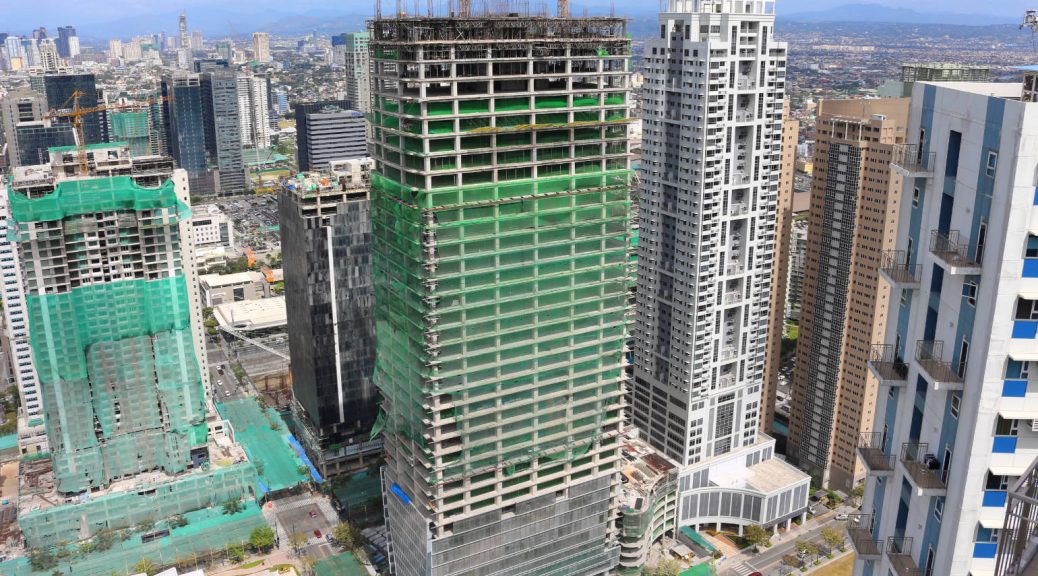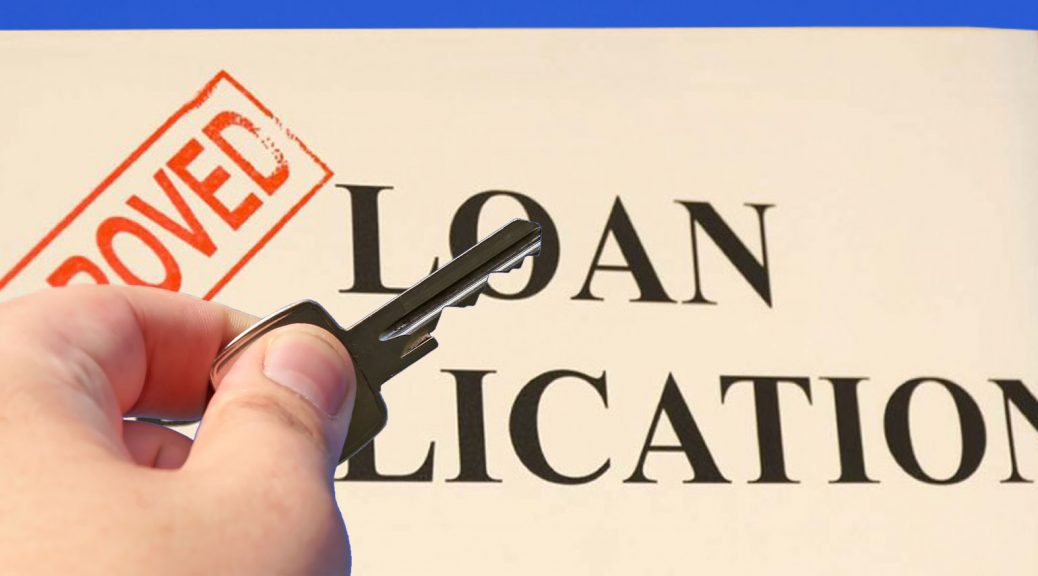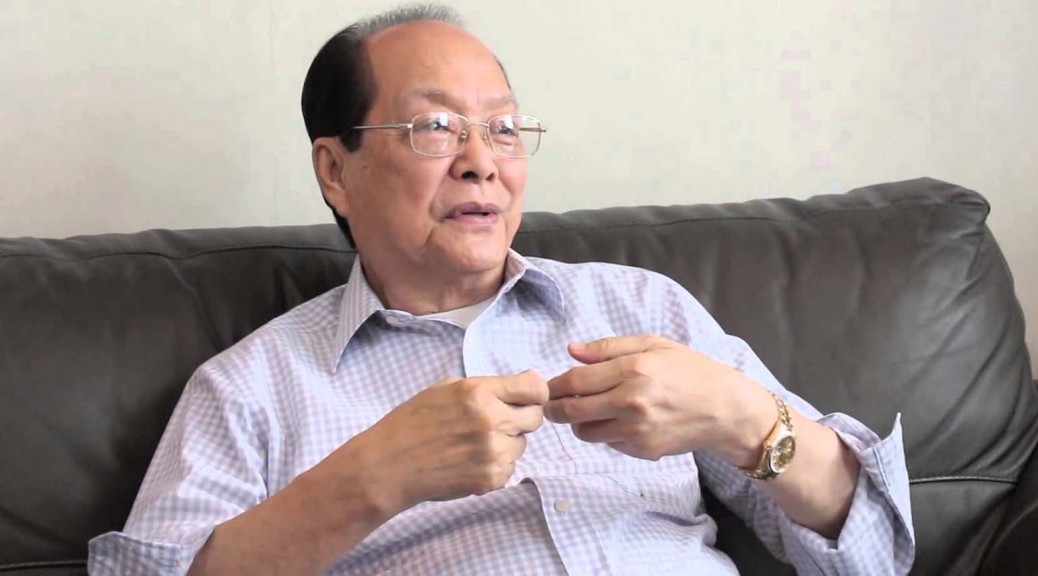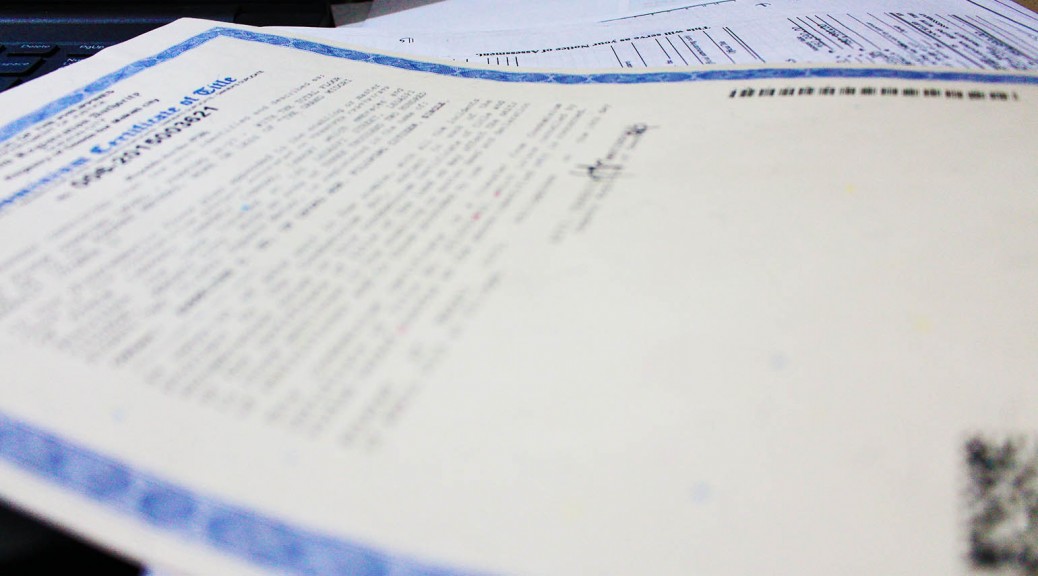
P.D. 957 – Your Protection Against Real Estate Misrepresentations
Presidential Decree No. 957 otherwise known as “Subdivision and Condominium Buyer’s Protective Decree” was initiated by the late President Ferdinand Marcos on July 12, 1976 and applied with the latest revised implementing rules and regulations in 2009.
The primary purpose of this decree is to protect the buyers of condominium projects and subdivision developments against misrepresentations and fraudulent activities of developers, sellers and operators.
Nowadays, real estate competition among developers, agents and operators is becoming more stiff. Some of these people would do anything just to close the deal with their clients. And the idea of “doing just anything” to close the deal is a double edged sword.
To do anything good to benefit both parties (the client and the seller) is what’s ideal and just. However, what if only one party benefits more in the transaction? In this case, it is usually the seller.
This happens when sellers (property developers, operators, brokers and salespersons) over-promise something to clients but under-deliver, deceive the client by fraudulent presentation or by simply feeding the client with information which are not true, incomplete or incomprehensive.
There were (and still are) numerous complaints against these unscrupulous activities of property developers, operators, brokers and salespersons reported to different government agencies such as the Housing and Land Use Regulatory Board (HLURB) and National Housing Authority (NHA).
Thus, this decree, PD 957, was passed to resolve these problems and to protect the welfare of the property buyers.
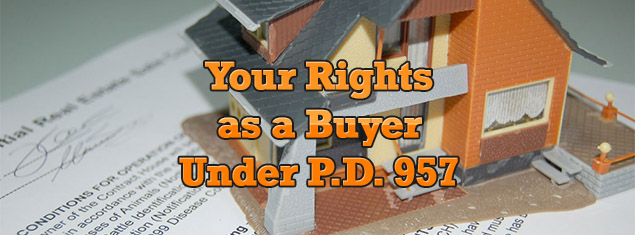
Section 9 of the PD 957 talks about the revocation of registration certificate and license to sell.
This is upon a verified valid complaint and satisfactory evidences by the buyer against the property developers or operators, of the following grounds:
- Is insolvent; or
- has violated any of the provisions of this Decree or any applicable rule or regulation of the Authority, or any undertaking of his/its performance bond; or
- Has been or is engaged or is about to engage in fraudulent transactions; or
- Has made any misrepresentation in any prospectus, brochure, circular or other literature about the subdivision project or condominium project that has been distributed to prospective buyers; or
- Is of bad business repute; or
- Does not conduct his business in accordance with law or sound business principles
Delayed Turnover?
Aside from the above mentioned sanction to the owner or the developer of the condominium or subdivision project, Section 23 of P.D. 957 covers the most common dilemma of property buyers, delay in the delivery of the project.
SECTION 23. Non-Forfeiture of Payments.No installment payment made by a buyer in a new or existing subdivision or condominium project for the lot or unit he contracted to buy shall be forfeited in favor of the owner or developer when the buyer, after due notice to the owner or developer desists from further payment due to the failure of the owner or developer to develop the project according to the approved plans and within the time limit for complying with the same. Such buyer may at his option be reimbursed the total amount paid including amortization interests but excluding delinquency interests, with interest thereon at the legal rate.
It is almost always that buyers of the condominium or subdivision properties cannot do anything about the announcement of delays in the delivery of their purchase. However with Section 23 of P.D. 957, the buyer can actually do 2 things:
- Desist from further payment after due notice to the owner or developer of the project and clearance from the Board (HLURB) as mandated in the 2009 revised implementing rules and regulations for the decree. See the 2009 revised IRR for PD 957 here.
- Demand to be reimbursed the total amount paid including amortization interests but excluding delinquency interests, with interest thereon at the legal rate.
“No Downpayment” Scam
Here is another misleading activity, the “NO DOWN PAYMENT” ad in the flyers of sales agents and brokers.
SECTION 19. AdvertisementsAdvertisements that may be made by the owner or developer through newspaper, radio, television, leaflets, circulars or any other form about the subdivision or the condominium or its operations or activities must reflect the real facts and must be presented in such manner that will not tend to mislead or deceive the public.
The owner or developer shall [be] answerable and liable for the facilities, improvements, infrastructures or other forms of development represented or promised in brochures, advertisements and other sales propaganda disseminated by the owner or developer or his agents and the same shall form part of the sales warranties enforceable against said owner or developer, jointly and severally.
Failure to comply with these warranties shall also be punishable in accordance with the penalties provided for in this Decree.
The “NO DOWN PAYMENT” promotion when presented to common people, will ordinarily be perceived as “no equity required” for the unit and the buyer will just have to mortgage the whole amount or otherwise pay the total contract price upfront.
But actually, this “NO DOWN PAYMENT” that they’re saying, only means there is no lump sum amount needed for the down payment to purchase the unit. This is because the down payment (or the equity) of the property is stretched out to the allowable term given by the developer or owner of the project.
For example, most developers usually require 20% downpayment and the rest can be bank-financed or HDMF-financed (PAG-IBIG); What they do is they allow buyers to pay the 20% downpayment over a period of several months or years.
And it is only when that 20% payment is completed and when a loan for the remaining 80% has been taken out, that the buyer can start using his property. So essentially, there still is a downpayment required. Don’t be misled by advertisements like this.
Most importantly, know Section 33 of this P.D which states:
SECTION 33. Nullity of WaiversAny condition, stipulation, or provision in contract of sale whereby any person waives compliance with any provision of this Decree or of any rule or regulation issued thereunder shall be void.
Purchasing a real estate property is very exciting especially if it is your first time. Oftentimes, emotions can carry the buyer away. Sadly, there’s a number of misrepresentations going on right now in the real estate industry to overwhelm your emotion.
So as a prudent buyer of a real estate property it is very important to know your rights and the laws which protect these rights.
Below is the full text of Presidential Decree 957 together with its Implementing Rules and Regulations from the HLURB. For offline reading, you may also download it using the link below the viewer.
You might also want to check:
- Defaulting Payments- Know Your Rights under Republic Act 6552 (Maceda Law)
- What Will Happen To a Condominium Investment After 50 Years?
Are you are looking to buy a property in the Philippines?
Whether it be it a condominium, house, lot or commercial property, choosing your broker or agent also makes a huge difference! You don’t only need a broker who is licensed and knowledgeable.
You also need your broker to be always there for you when you have concerns about your real estate transaction. And you need him/her to be there even long after your purchase.
That’s one of the things we guarantee our clients here at PPE and the reason why our clients voted us the Most Trusted Brokerage Firm in the Philippines.
See how we can help you today:
Disclaimer: The information in this post is not meant as legal advice and should not be taken as such. See our full legal disclaimer.
-
Jose Mari Trinidad
-
Joanne Almaden
-
Chona
-
Nimrod Flores
-
-
-
-
Jelopre Magtoto
-
Nimrod Flores
-
Jelopre Magtoto
-
Nimrod Flores
-
-
-
-
jul
-
Nimrod Flores
-
Jelopre Magtoto
-
Nimrod Flores
-
-
-
-
symonwho
-
Nimrod Flores
-
symonwho
-
-
-
Jen Jersey
-
Joanne Almaden
-
jenalynjimena
-
-
-
Den Morales Ratay
-
Nimrod Flores
-
Den Morales Ratay
-
Andres Manipula
-
Jessa
-
-
-
-
Maricar Galor
-
jason lubrica
-
jason lubrica
-
Nimrod Flores
-
Ryan Sevilla
-
Nimrod Flores
-
Ryan Sevilla
-
Albert John Arrubio
-
-
-
-
-
wenalyn chu
-
Nimrod Flores
-
Ronilo Ysmael
-
-
Nimrod Flores
-
Marciana Gregorio
-
Elmer Sumat Mendoza
-
Joanne Almaden
-
Jessa
-
-
John Chua
-
April Lagutan
-
Elma Rose Cayabyab
-
Nimrod Flores
-
-
Ning O
-
joy
-
Nimrod Flores
-
-
Ryan Joseph
-
Dennis Quiambao
-
shuttereyebags
-
June Anthony Quintos Duque
-
-
-
Lovie
-
Eula
-
anthony paguia
-
Rachel Ruivivar
-
Drei
-
Elizabeth Saplan
-
Gie
-
bikolano
-
Gissele Ramos
-
bikolano
-
Gissele Ramos
-
bikolano
-
Gissele Ramos
-
Edwin Briones Aquiatan
-
Charlie Ann
-
bikolano
-
Charlie Ann
-
bikolano
-
Ross Legacion
-
mabel lim
-
Janine
-
-
-
-
-
saxah999
-
Pixie Dust
-
Aiza Rodrigo
-
Rachelle Dela Cruz
-
Wendy Betito-Divina
-
gie
-
Johannes B. Eran
-
princes devio
-
Casper
-
bikolano
-
-
Xian Aidan Glory
-
Jessa
-
Jessa
-
lovemyhusband
-
mat bel casipit
-
Annie
-
Kimberly Rose Espelmbergo
-
Tramadol Analgesic
-
Patricia Rathmell
-
leah aparente
-
Karen
-
bikolano
-
Karen
-
bikolano
-
Karen
-
bikolano
-
Karen
-
bikolano
-
jhay
-
bikolano
-
jhay
-
Drei
-
bikolano
-
lovemyhusband
-
bikolano
-
lovemyhusband
-
bikolano
-
lovemyhusband
-
Drei
-
bikolano
-
Drei
-
bikolano
-
Drei
-
bikolano
-
Drei
-
Drei
-
bikolano
-
Drei
-
bikolano
-
Drei
-
bikolano
-
Drei
-
Sha
-
bikolano
-
Sha
-
bikolano
-
allhen
-
bikolano
-
bikolano
-
Susan S Marcelo
-
bikolano
-
Susan S Marcelo
-
bikolano
-
Susan S Marcelo
-
bikolano
-
Susan S Marcelo
-
Jason Pascual
-
Susan S Marcelo
-
Lhei Amisola-Lim
-
Susan S Marcelo
-
Susan S Marcelo
-
bikolano
-
Aissa Marie Julia Llanto
-
-
-
-
-
Alvanna
-
Christian Tolentino
-
Armando Francisco
-
Nimrod Flores
-
-
Justine
-
Nimrod Flores
-
-
Armando Francisco
-
Nimrod Flores
-
-
Oliver
-
Nimrod Flores
-
-
Francisco Mendoza
-
Nimrod Flores
-
-
richa suzette samonte
-
Karen
-
richa suzette samonte
-
Drei
-
-
-
Bert
-
Nimrod Flores
-
Bert
-
-
-
Katy
-
Nimrod Flores
-
Katy
-
-
-
Paula
-
Nimrod Flores
-
-
John
-
Joanne
-
richard villanueva
-
JM GH
-
-
Shirley Calub
-
Rico
-
Hrnan Munoz
-
-
Hrnan Munoz
-
Shirley Calub
-
-
-
Dr. Christoph Grandt
-
JM GH
-
Dr. Christoph Grandt
-
-
-
Drei
-
JM GH
-
-
Mrl
-
JM GH
-
Mrl
-
JM GH
-
Mrl
-
-
-
-
-
Cathy Pagco Zabala
-
JM GH
-
Ronilo Ysmael
-
-
Arnold Caranguian
-
taloPikon
-
Nimrod Flores
-
Ronilo Ysmael
-
Jean Bell Ploteña
-
-
Jake
-
Donna G Esguerra
-
Drei
-
Ronilo Ysmael
-
-
nerisa almo
-
Ronilo Ysmael
-
-
HD Lonzaga
-
Marilyn Manalo
-
-
Ferdinand Bañaga
-
Edwin
-
Fred Lomeda
-
-
alfred sumala
-
Marie
-
Olyve Öl
-
Mel Man
-
bikolano
-
abigail go
-
bikolano
-
-
-
Ronilo Ysmael
-
-
Elisa Masirag
-
Nimrod Flores
-
Arianne Concha
-
Mae
-
-
Anne Pauline Genavia
-
-
Robert Cruz
-
Ronilo Ysmael
-
Hrnan Munoz
-
Hrnan Munoz
-
-
Michael Moreno
-
Ronilo Ysmael
-
-
Mhinnzy
-
Ronilo Ysmael
-
-
Rolskie Amoller
-
Ronilo Ysmael
-
-
Raym Guyal
-
陳佳智
-
Lim Siblings
-
Efren Parafina
-
Peter
-
Jean Bell Ploteña
-
Escobal Vic
-
Escobal Vic
-
Escobal Vic
-
Richard Quinto
-
Nimrod Flores
-
-
Myra Sarmiento
-
Evan
-
Shashings
-
Deosette Ternida
-
custer boone
-
Mavhic
-
ems anderson
-
yviangv
-
Rex Bernardino
-
14120s
-
Joyce Yballe
-
Justine
-
Adrian Almirez
-
J-rom Dela Cruz
-
dian
-
Maria Isabel Gbn
-
Mapi Elazegui
-
Jay M. Jano
-
Rowie Hortelano
-
Leb dipal
-
Vircy Bendana
-
John Michael Galamay
-
Dhave Dayao
-
Erika Louisse
-
Sharon Sarmiento Jayme
-
Alvin Relos
-
Ley Buldaken
-
Scandy Marie Galac
-
Leb dipal
-
-
Leb dipal
-
Lotis Agravante
-
Ehs Li
-
Ig
-
abigail go
-
Julius De Belen
-
Jeof De Torres
-
Lio De Paz
-
cha
-
Gene Rosalyn Nama
-
Gene Rosalyn Nama
-
Junmeister
-
Dianne Corilla
-
anna liezl isorena
-
Raighne
-
jedah
-
Cirsty Velunta
-
Maria Franchesca
-
Jr Mendoza
-
mirmo de pon
-
Grace
-
Romeo Jr. Carganillo
-
Praise Armiane Quizmundo
-
Well Lagman
-
sphinxkey
-
Jee Emm Enomar
-
Andrew samson
-
rainiell guevara
-
Brando Bandido
-
Michelle Morfin
-
Jeffrey Claros
-
Mellicent Joy Daniel
-
adeluisa faraon
-
Jenielyn Dacer De Jesus
-
Nica
-
Jeff Biazon
-
aesor
-
Chitz Enriquez
-
Clinton
-
Pie Tuldanes
-
Mik Mik
-
shin
-
genica fernandez
-
Elaine De La Fuente





